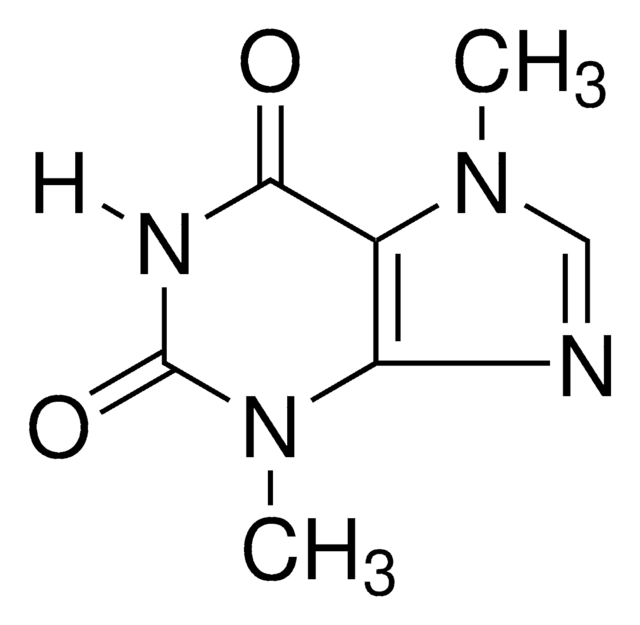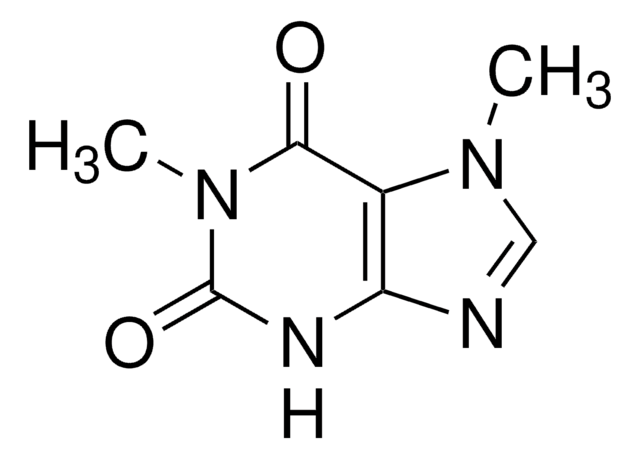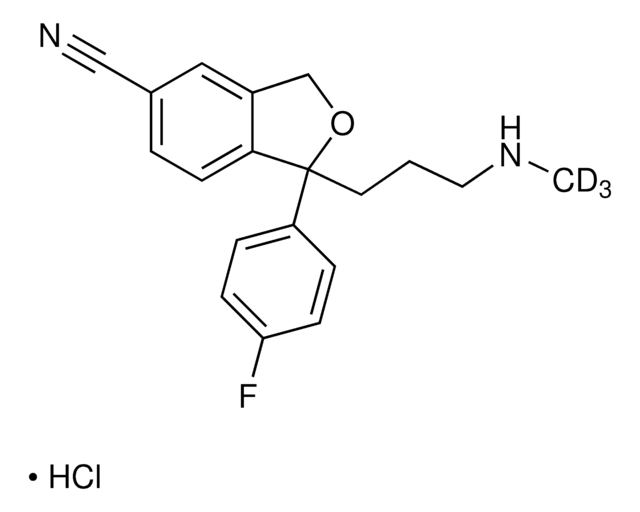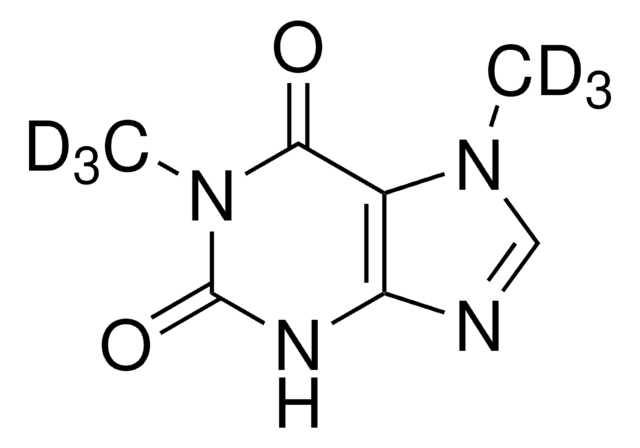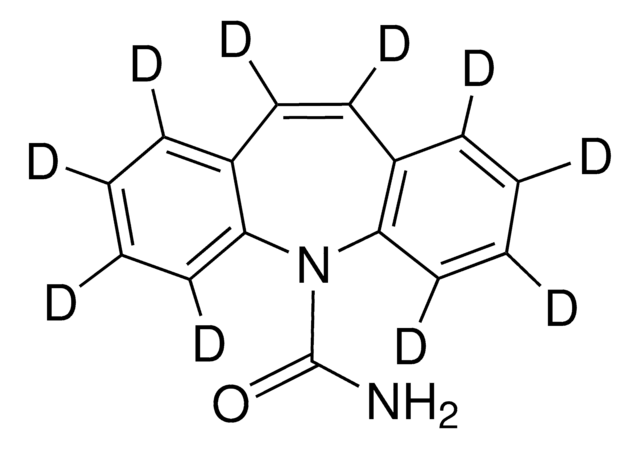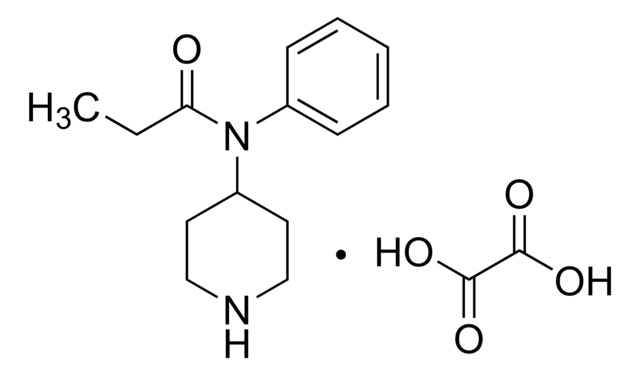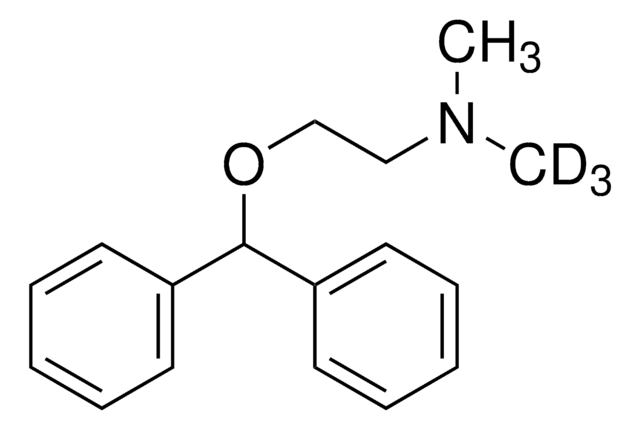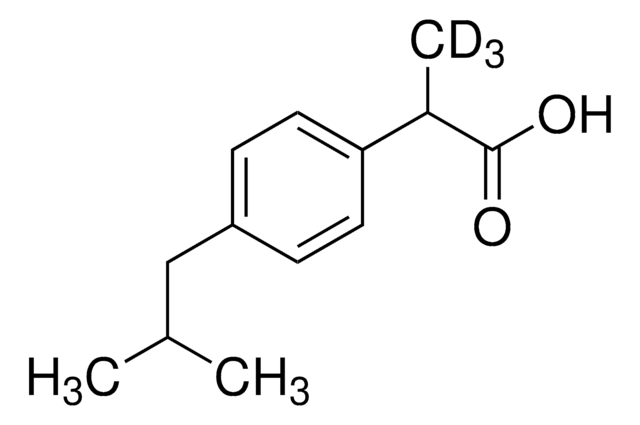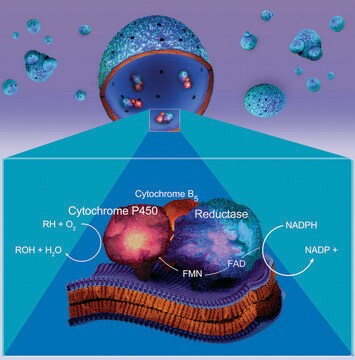IMPC-051-03
Paraxanthine solution
1.0 mg/mL in methanol, ampule of 1 mL, certified reference material, Cerilliant®
About This Item
Productos recomendados
grade
certified reference material
form
liquid
feature
Snap-N-Spike®/Snap-N-Shoot®
packaging
ampule of 1 mL
manufacturer/tradename
Cerilliant®
concentration
1.0 mg/mL in methanol
technique(s)
gas chromatography (GC): suitable
liquid chromatography (LC): suitable
application(s)
pharmaceutical (small molecule)
format
single component solution
storage temp.
room temp
SMILES string
CN1C(=O)Nc2ncn(C)c2C1=O
InChI
1S/C7H8N4O2/c1-10-3-8-5-4(10)6(12)11(2)7(13)9-5/h3H,1-2H3,(H,9,13)
InChI key
QUNWUDVFRNGTCO-UHFFFAOYSA-N
General description
Legal Information
Related product
signalword
Danger
Hazard Classifications
Acute Tox. 3 Dermal - Acute Tox. 3 Inhalation - Acute Tox. 3 Oral - Flam. Liq. 2 - STOT SE 1
target_organs
Eyes,Central nervous system
Storage Class
3 - Flammable liquids
wgk_germany
WGK 2
flash_point_f
49.5 °F - closed cup
flash_point_c
9.7 °C - closed cup
Certificados de análisis (COA)
Busque Certificados de análisis (COA) introduciendo el número de lote del producto. Los números de lote se encuentran en la etiqueta del producto después de las palabras «Lot» o «Batch»
¿Ya tiene este producto?
Encuentre la documentación para los productos que ha comprado recientemente en la Biblioteca de documentos.
Los clientes también vieron
Artículos
Xanthine is a purine base found in most human body tissues and fluids as well as in other organisms. Methylated xanthines (methylxanthines), which include caffeine, paraxanthine, theobromine, and theophylline, commonly used for their effects as mild stiµlants and as bronchodilators, notably in the treatment of asthma symptoms. This application shows the efficient separation of several common xanthines and may be applied their analysis in any number of desired matrices.
Nuestro equipo de científicos tiene experiencia en todas las áreas de investigación: Ciencias de la vida, Ciencia de los materiales, Síntesis química, Cromatografía, Analítica y muchas otras.
Póngase en contacto con el Servicio técnico